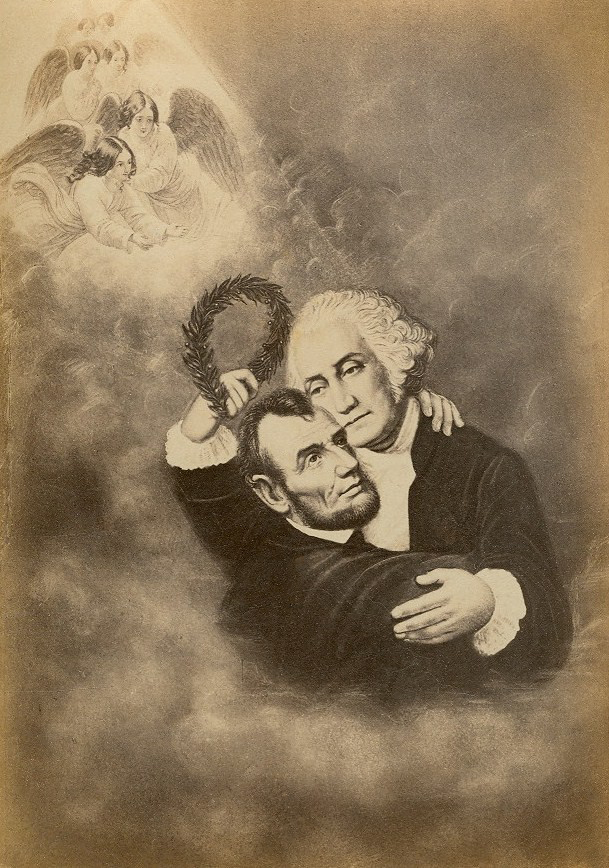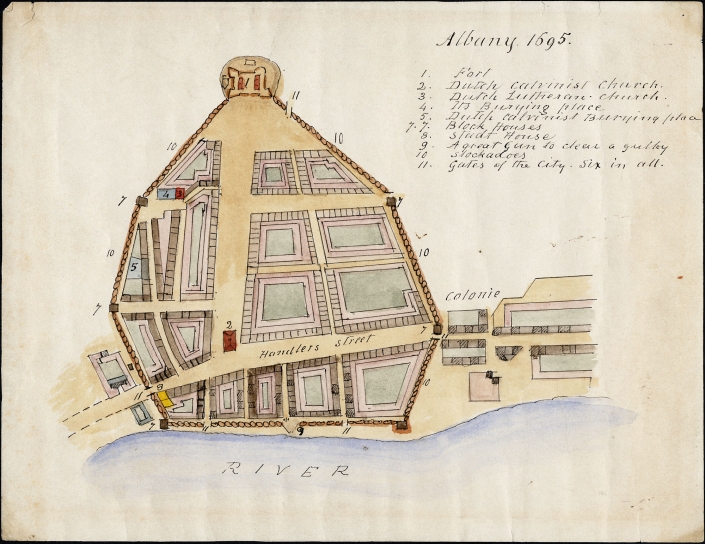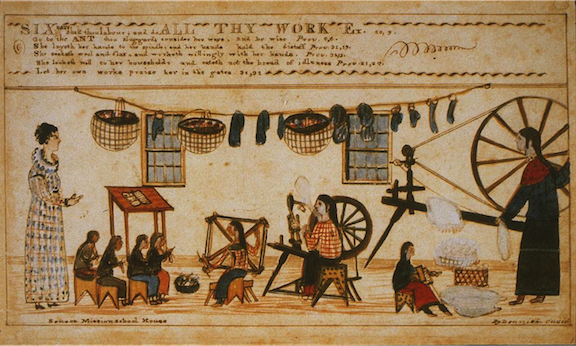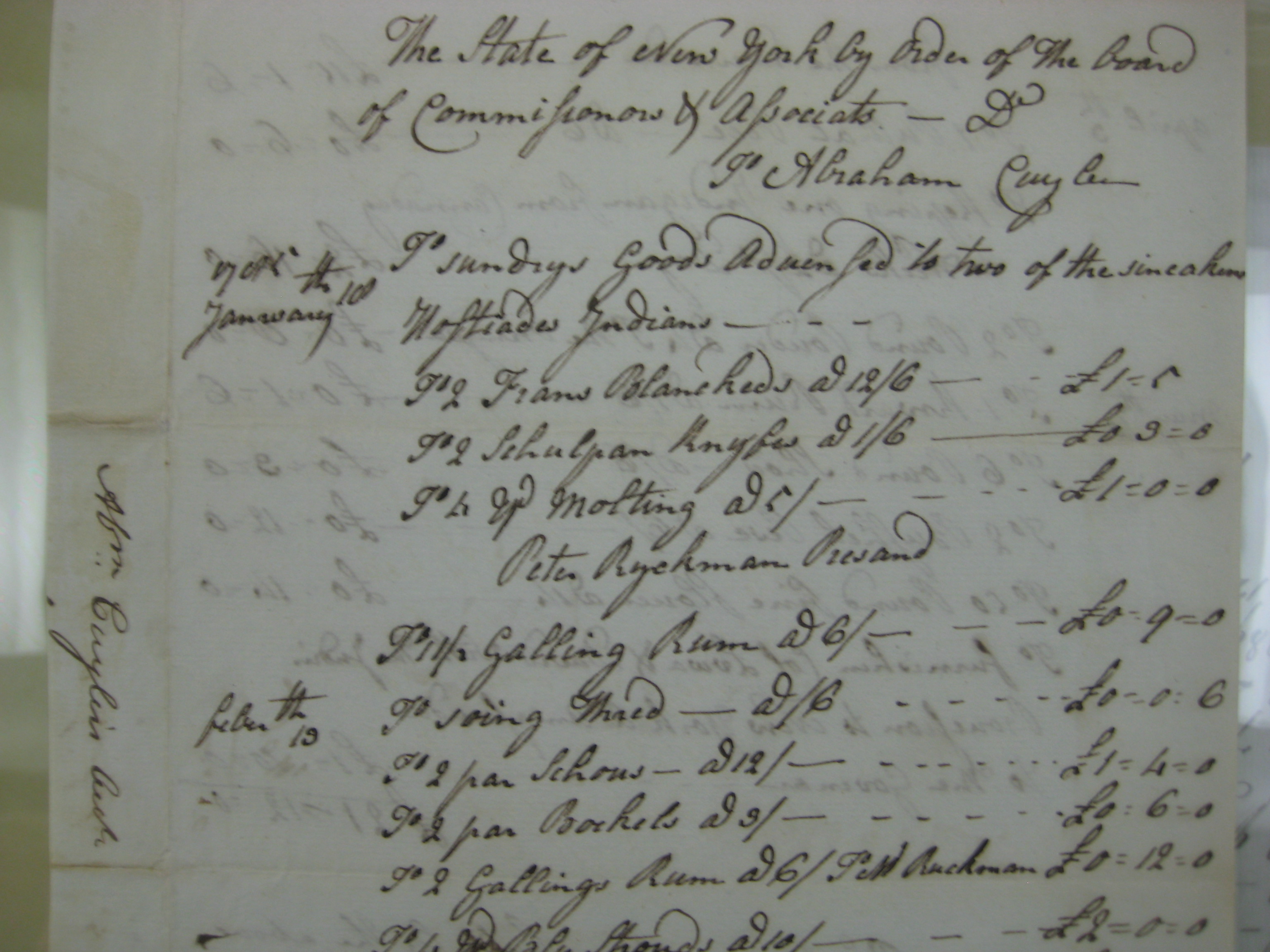Since arriving at UAlbany in 2014, I have developed eight new courses at the undergraduate level and five new courses at the graduate level. I have also supervised nineteen graduate directed readings and three successful undergraduate honors theses, including one honors thesis that won the University’s Presidential Award for Undergraduate Research. In the History and Documentary Studies programs, my courses guide students through the process of thinking, writing, and working like a historian, and emphasize why these skills have value beyond the university in situations students will encounter after graduation. At all levels my teaching philosophy is oriented around asking and pursuing questions to help students understand history as a method and practice which they can apply beyond the classroom. My courses, like my research, engage with a broad range of sources including quantitative, spatial, visual, material, and textual evidence, and my approach to teaching is to help students understand how to analyze and integrate a wide variety of evidence in their oral and written argumentation. My 2017 Intro to Digital History graduate and undergraduate courses won the UAlbany President’s Award for Exemplary Public Engagement for our partnership with the Capitol District YMCA. I was nominated for the 2016 and 2020 UAlbany Torch Student/Faculty Engagement Award, and in 2022 I won University President’s Award for Excellence in Teaching.
Introductory pedagogy
At the introductory level, my courses introduce students to the process of thinking and approaching evidence like a historian, as well as how and why these skills can be applied in other courses and beyond the university. My introductory course familiarizes students with the distinction between primary and secondary sources, how to assess the intent and audience for primary, secondary and tertiary sources like Wikipedia and when each should or should not be relied on, and the major themes and events in American history from contact to the end of the Civil War. Assignments in my introductory course are structured to guide students through learning the mechanics of academic writing such as citations and organization, as well as the central questions of what do you know, what don’t you know, and how do you know what you know. These questions structure the assignments, discussion sections, and lectures for the first half of the course, guiding students through the process of approaching unfamiliar historical evidence. In lectures, I model this structure by laying out for students a brief overview of what they already know from pervious lectures and assigned readings, and then ask them to apply this knowledge to questions about why, using the University’s iClicker system to encourage student accountability and participation. These why questions structure the assignments in the latter half of the semester, allowing students to practice the skills built in the first half of the course to analyze evidence and develop skills in argumentation. In summer 2018, I participated on a roundtable at the Omohundro Institute for Early American History and Culture’s annual conference discussing new teaching methods in the introductory survey.
My 200 level course focuses on the development of research skills, writing for multiple audiences, use of multiple methods for analyzing evidence, and evaluation of competing historical interpretations. The midterm and final projects for Introduction to Digital History are service learning projects in partnership with the Albany Walks for Health initiative sponsored by the Albany Mayor’s office, the Albany County Public Health Department, the Albany Police Department and the Albany YMCA, and assignments throughout the semester scaffold the steps necessary to design and present a historical service project. By researching and creating a mobile internet historical walking tour for the midterm project, students gain experience in conducting secondary research to contextualize their project, evaluating the argument of secondary scholarship in multiple formats including traditional and web publications, sifting through and contextualizing primary documents, and writing for a public audience. The final project reinforces and extends these skills by having students evaluate the research questions prompted by their earlier research and midterm projects, formulate a data-driven research project, assess the methodological approach which might answer their research question, and construct a historical argument which contextualizes their midterm walking tour for a public audience.
Upper level pedagogy
At the 300 and 400 level, my courses focus on archival research, understanding the historical and historiographical context of scholarship, the ethics of scholarship, and writing as rewriting. Through small group activities and discussion in the first weeks of the semester, students become familiar with the major theoretical concerns of the subfield and the stakes of academic scholarship for Indigenous communities and modern labor politics. Foregrounding the theoretical contours of the subfield in the early weeks of the course outlines for students an approach to the historiography of the field as well as the ethics of scholarship. For Spring 2020, I reworked my History of American Indians course to give students more hands-on experience with real-world cases through a problem and team based learning style curriculum. Although interrupted by our shift to remote learning due to Covid-19, my students have adapted to a remote and asynchronous version of this curriculum. I chose to keep this structure of small-group discussion of real-world cases in part to give students a continuity of social interaction with their peers during this time of upheaval, and in part because I believe the current issues that Covid-19 has caused for Indigenous communities highlights many of the historical themes of the course. Assignments for my upper level courses guide students through the process of archival research and the application of theoretical approaches such as spatial history and the social construction of identity. To refine students’ writing skills in these courses, the final project for the course requires major revision and expansion of an earlier paper based on feedback from myself and classmates.
During the difficult academic year 2020-2021 in which most of our teaching was delivered remotely, I redesigned all of my courses for asynchronous instruction with opportunities for synchronous discussion to give students maximum flexibility and support. For my 100 level intro course, I structured the course with a “gameified” points progression through scaffolded challenges, which culminated in weekly synchronous zoom meetings for game-show style quiz challenges that students completed in teams. This allowed students to always clearly see how much of the course they had completed, their progression towards their target grade, and incentivized weekly section attendance without penalizing students who were not always able to attend synchronously. Students were able to complete the course at their own pace, and the points progression helped my TAs and I to easily identify and individually reach out to students who fell behind. At the 300 level, I redesigned my courses into standalone weekly asynchronous modules. As a teacher and scholar of race in early America, my subjects are often the topic of modern political conflict. To help my students make sense of and find their own voices during the turbulent politics of fall 2020, I designed my courses to explicitly examine why early American history has become a modern political flashpoint, and model civil political discourse through the analysis of academic, popular, and political discourse on these issues.
Graduate pedagogy
At the graduate level, I teach readings, practicum and research courses, which require slightly different pedagogical approaches though they share in common an effort to help students understand the integration of theory and practice, as a way of understanding historiographic shifts and how they might begin to frame their own projects. In my readings course, students take responsibility for leading discussion and framing the assigned text historiographically for one class session, in addition to writing two book reviews throughout the semester. These assignments are all circulated via email or collaboration aids such as slack.com (a team collaboration tool) or zotero.org (a digital citation manager) to the entire class prior to each class meeting, introducing students to the practice of scholarship as conversation and the practice of writing for an audience of peers. During seminar discussion, I intervene to refocus discussion on important points and to push students to more precisely articulate their own observations or critiques. In seminar I emphasize helping students understand not only the critiques which might be leveled at a given work, but also why a scholar may have framed or approached a project in a certain way, in an effort to help students begin to think through the frameworks of their own dissertation projects. The culmination of this course is an annotated bibliography and historiography paper which reaches beyond the core texts of the course, in which the student is tasked with making thematic connections in the field to further emphasize the course goal of exploring the theoretical grounding of scholars’ contributions to their field.
My practicum course puts these pedagogical goals to work by marrying theory and method by giving students hands on experience with methodological approaches we examine historiographically. Doctoral students are given the option of designing a research project in their dissertation area, while master’s students design a research project around the course’s theme (the history of UAlbany for Spring 2015, the history of downtown Albany for Spring 2016, and the history of an early Albany fire company for Spring 2019). Students first assess the major historiographic questions of their chosen topic, and the course guides students through a variety of digital humanities techniques for working with different types of humanistic data, which students then select to specialize in for their final project. To help students understand the distinction between digital history as a methodological approach to scholarship and digital publishing as a medium for scholarly work, students work individually on their own projects which apply a methodological approach, but work collaboratively to structure the website hosting their projects. By discussing the scholarly intervention made by example projects we examine in seminar style discussion and learning a variety of techniques to approach quantitative, textual, social and spatial information, students gain technical research experience coupled with an understanding of the ways in which theory informs method which can be applied to their future digital or traditional work.
My goal as a committee member and chair is to help students build on but push beyond their coursework to make significant connections between conversations in the discipline. In preparing doctoral and master’s students for their comprehensive exams, I meet with the students individually to build a reading list which complements the student’s writing and career goals, discuss the direction of the field represented in the lists, and major questions in the field. I also endeavor to be available and supportive of students by discussing professionalization issues and opportunities for outside funding and presentation of research. My first doctoral student, Dr. Elana Krischer, won the 2020 UAlbany President’s Distinguished Dissertation Award with an article accepted in the Journal of the Early Republic before her graduation.




